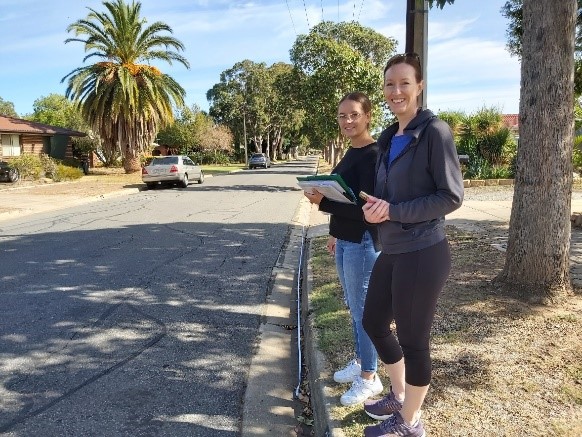No matter where you are, it would be near impossible to walk down any street or beach without seeing rubbish. From food packaging to plastic bags, plastic pollution infiltrates our environment. But how much rubbish is there, what types of rubbish do we discard, and how can we prevent it? Volunteers have been helping scientists find out.
The power of volunteers and citizen science
CSIRO has teamed up with Conservation Volunteers Australia (CVA) to expand its National Plastic Pollution Baseline Survey. This will help answer these types of questions. The project aims to collect data to understand the scope, scale and types of litter lost to the environment. Community volunteers from around Australia are helping.
Through the CVA #SeaToSource program, more than 3,500 volunteers have contributed to CSIRO’s plastic pollution surveys. They have removed more than 9,000 kilos of rubbish. More than 181,200 items were plastic.
CSIRO’s Dr Denise Hardesty says this data is increasing our knowledge on the extent of plastic pollution across a range of areas.
“Australia is a large country with thousands of kilometres of coastline. It’s impossible for CSIRO staff alone to survey such a vast area and process the data efficiently,” Hardesty said.
“With the help of Conservation Volunteers, we’re recording crucial data. This will help us get a better handle of what rubbish is where. We will be able to identify hotspots, problem areas and items. It will also identify methods to stop our litter ending up in the environment in the first place.”
Research shows that litter isn’t just on the coastlines. So CSIRO has expanded its work from the coastlines to inshore areas too. It’s found wherever there are people. It often moves along rivers, creeks and streams. Surveying is being carried out in areas around the country. In neighbourhoods, along footpaths, near shopping centres and parklands.
Plastic pollution is everyone’s responsibility
CSIRO staff are also rolling up their sleeves to contribute.
Caroline Bull, a Senior Research Scientist from CSIRO Health and Biosecurity is aware of the detrimental impact plastic pollution has on the environment. She participated in a local survey.

“My day usually consists of science relating to health. However, I was keen to contribute to another worthwhile cause. It wasn’t a huge commitment. It was also a great way to work with new people,” Caroline said.
“I found it valuable to gain a better understanding of plastic in my area. I also learned how the various data technologies enable people to collect this data all over the country. And the world!”
Community efforts, national improvements
Collecting and recording rubbish can result in real and tangible methods to reduce plastic waste.
“The item found the most during our recent survey was beverage containers,” Hardesty revealed.
“This can inform strategies being put in place by waste management. Examples include container deposit schemes or education around recycling. It could also assist industry in improving production methods.
"Container deposit schemes can reduce the amount of items ending up in our oceans by 40 per cent. That is a significant amount. Having the data from surveys like ours means we can measure and compare rubbish over time. This will help assess the effectiveness of plastic reduction schemes.”
Want to volunteer? You can!
Renae Riviere, Campaign Director for CVA’s Revive campaign said volunteers are not only helping with data collection but also helping to stop plastic waste at the source.
“Removing litter is a simple action, but a valuable contribution. It makes local neighbourhoods look cleaner. Every piece we pick up is one less piece out in the environment. This reduces the impact of litter on wildlife,” said Ms Riviere.
“Our program is focused on eight waterways as part of the Great Southern Reef. It extends around Australia’s coastline, from Moreton Bay, Queensland to Kalbarri in Western Australia.
“We have facilitated hundreds of plastic pollution surveys and beach clean-ups. We are also looking at where the litter is coming from, and educating communities on ways to reduce it.”
On a mission to end plastic waste
CSIRO’s plastic surveys are part of a broader CSIRO focus to change the way we make, use, recycle and dispose of plastic.
“By first understanding the extent of the problem and what plastic items end up where, we can generate the solutions needed to stop pollution items ending up in our environment,” Hardesty said.
“This includes innovative approaches throughout the plastics supply chain to generate value for plastic. This means it won't be considered a waste. Understanding plastic in the environment is just one step. Other solutions are needed such as sustainable packaging alternatives and circular economy opportunities to re-use plastic waste,” Hardesty said.
“Ultimately, by treating plastic as a valuable commodity, we will change our relationship with plastic. This will help create a fundamental change in our communities and beyond.”
More surveys will be conducted this year to increase the national baseline and monitoring program for Australia. This research is part of CSIRO’s Ending Plastic Waste Mission in development. The goal is an 80 per cent reduction in plastic waste entering the environment by 2030.
The time required to contribute is as little as a couple of days over a 12-month period.
Sign up to help tackle plastic waste.
